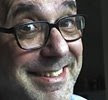The precedent for this is older than the TV era. On election eve, 1944, the Democrats bought an hour of time on all four national radio networks to drum up votes for Roosevelt in his campaign against New York governor Thomas E. Dewey.
SNL previewed Obama's closer as a variety show.
I have no idea if that's what Obama's team has planned. But an all-star variety show is just what FDR's team delivered.
In 1944, the Democrats handed the assignment for developing the format and script for their get-out-the-vote broadcast to Norman Corwin, the most imaginative and poetic writer of the radio era, (still active today at 98). Erik Barnouw wrote that based on the President's approval of a two-page outline, Corwin was given a free hand to develop the show.
What he delivered combines testimonials from citizens across the country and the political spectrum, combined with musical numbers written for the show by Earl Robinson ("Joe Hill," "The House I Live In," "Ballad for Americans") and lyrcist E. Y. "Yip" Harburg ("April in Paris," "Only a Paper Moon"). Singers on the show included two stars who had introduced Harburg classics in their 1939 films, Judy Garland ("Over the Rainbow" in Wizard of Oz) and Groucho Marx ("Lydia the Tatooed Lady" in At the Circus).
You can hear the FDR infomerical online at Vintage Radio Place. Click the Nov 5 show. Then jump ahead to the second hour.
What struck me on hearing the show was how many of the themes and issues raised in 1944 have close parallels to today's campaign.
Vote Suppression: Roosevelt charged that "Millions of soldiers and sailors and merchant seamen have been handicapped or prevented from voting by those politicians and those candidates who think that they stand to lose by such votes."
Campaign Finance: 1944 was the year of the very first PAC. It was set up by the CIO to allow individuals to make small contributions to counter large Republican donations, such as the $13 million given by Sun Oil's Joseph N. Pew Jr. ($13 million in 1944 is equivalent to $161 million today). Naturally, the Republicans denounced it.
Investment in Energy A Tennessee farmer testifies to the benefits of the TVA
The Republican Brand: Then as now, the Republican brand was in tatters. Just as Obama ties McCain to Bush (Iraq, Katrina, Financial Meltdown), the Roosevelt broadcast tied Dewey to Hoover and Harding (Depression, Prohibition, Tea Pot Dome). James Cagney, Groucho Marx, and Keenan Wynn drive the point home in a medly that included"In the Good Ol' Hoover Time" and
East side, west sideSocialism: Groucho reminded the audience that the red communism scare had been used again and again with "distinguished lack of success." and went on to sing, "The Old Red Scare it ain't what it used to be."
All around the town
Banks were bustin' right in your face
Stocks were tumblin down
"Prosperity 'round the corner"
Bread lines 'round the block
Don't let Dewey bring Hoover
To the Sidewalks of New York.
Republican support: Just as the McCain campaign prodded a stream of conservative and Republican voters to announce for Obama, the FDR broadcast featured a series of Republicans who testified that they were voting for Roosevelt. The highlight was 94-year-old Julius Oscar, who, as a child, had shaken Lincoln's hand.
Celebrity Endorsements: FDR's backers appearing on the show included a very impressive cast. (Ronald Reagan was not there, but Jane Wyman was.)
From Hollywood:Roosevelt's speech at the close of the broadcast was surpringly unpolitical. He didn't mention his opponent. He didn't ask for votes. He simply asked the American people to be thoughful, look forward to the peace, and create a world worthy of the sacrifice of our fighters. He ended with a prayer.
Joan Bennett
Mr. and Mrs. Irving Berlin
Humphrey Bogart
Virginia Bruce
Jimmy Cagney
Harry Carey
Claudette Colbert
Joseph Caution
Linda Darnell
John Garfield
Judy Garland
James Gleason
Paulette Goddard
Susan Hayward
Rita Hayworth
Walter Huston
Rex Ingram
George Jessel
Danny Kaye
Gene Kelly
Evelyn Keyes
Groucho Marx
Paul Muni
George Raft
Edward G. Robinson
Gale Sondergaard
Lana Turner
Richard Whorf
Monty Woolley
Jane Wyman
Keenan Wynn
plus the youngest and oldest voters
19-year-old Betty Hall and 94-year-old Julius Oscar.
From New York:
Constance Bennett
Gertrude Berg
Milton Berle
Charles Boyer
Marc Connelly
Bennett Cerf
John Dewey
Eddie Dowling
Olin Downes
Edna Ferber
John Gunther
Fannie Hurst
the Ink Spots
Dorothy Maynor
Vilhjalmur Stefansson
Alonzo Myers
Dorothy Parker
Waldo Pierce
Elmer Rice
Barney Ross
Vincent Sheean
Frank Sinatra
Paul Strand
Franchot Tone
Louis Untermeyer
Benay Venuta
Fay Wray.
From Hyde Park:
President Franklin Delano Roosevelt.
The chairman of the DNC, Paul Porter, told Corwin that he thought the broadcast produced an additional million votes.




No comments:
Post a Comment